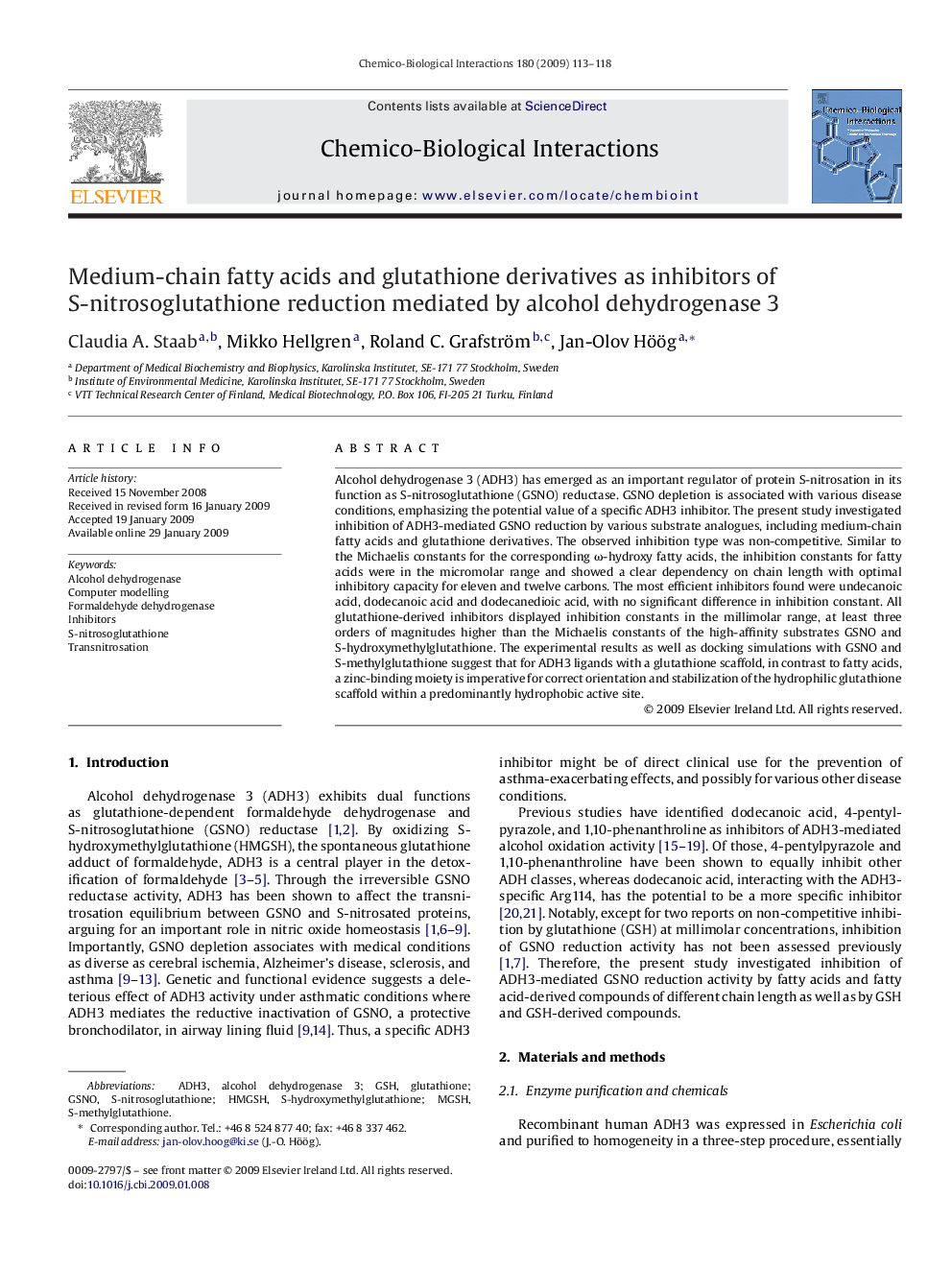| Article ID | Journal | Published Year | Pages | File Type |
|---|---|---|---|---|
| 2581370 | Chemico-Biological Interactions | 2009 | 6 Pages |
Abstract
Alcohol dehydrogenase 3 (ADH3) has emerged as an important regulator of protein S-nitrosation in its function as S-nitrosoglutathione (GSNO) reductase. GSNO depletion is associated with various disease conditions, emphasizing the potential value of a specific ADH3 inhibitor. The present study investigated inhibition of ADH3-mediated GSNO reduction by various substrate analogues, including medium-chain fatty acids and glutathione derivatives. The observed inhibition type was non-competitive. Similar to the Michaelis constants for the corresponding Ï-hydroxy fatty acids, the inhibition constants for fatty acids were in the micromolar range and showed a clear dependency on chain length with optimal inhibitory capacity for eleven and twelve carbons. The most efficient inhibitors found were undecanoic acid, dodecanoic acid and dodecanedioic acid, with no significant difference in inhibition constant. All glutathione-derived inhibitors displayed inhibition constants in the millimolar range, at least three orders of magnitudes higher than the Michaelis constants of the high-affinity substrates GSNO and S-hydroxymethylglutathione. The experimental results as well as docking simulations with GSNO and S-methylglutathione suggest that for ADH3 ligands with a glutathione scaffold, in contrast to fatty acids, a zinc-binding moiety is imperative for correct orientation and stabilization of the hydrophilic glutathione scaffold within a predominantly hydrophobic active site.
Keywords
Related Topics
Life Sciences
Environmental Science
Health, Toxicology and Mutagenesis
Authors
Claudia A. Staab, Mikko Hellgren, Roland C. Grafström, Jan-Olov Höög,
